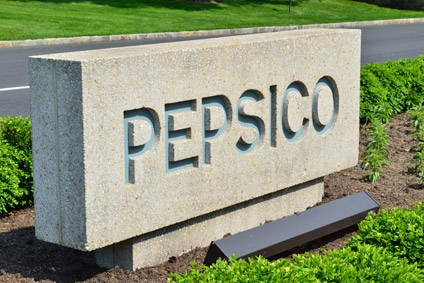
PepsiCo has set out a new strategic business policy with sustainability at its core to “create growth and value” across the US firm’s global food and beverage brands.
Pep Positive (pep+) is described by the Frito-Lay crisps and Mountain Dew drinks owner as a “strategic end-to-end transformation” project encompassing three guiding principles: “positive agriculture, [a] positive value chain and positive choices”.

Discover B2B Marketing That Performs
Combine business intelligence and editorial excellence to reach engaged professionals across 36 leading media platforms.
The company said it will seek to “build a circular and inclusive value chain” in its efforts to achieve net-zero greenhouse gas emissions by 2040 and become “net-water-positive” by 2030. The Walkers and Doritos snacks maker added it plans to introduce a new goal throughout the business’ portfolio to reduce so-called virgin plastics by 50% per serving by the end of the next decade.
It has also introduced a volunteering programme – One Smile at a Time – for its 291,000 global employees to “empower” them to “make positive impacts in their local communities”.
Group chairman and CEO Ramon Laguarta said: “Pep+ is the future of our company – a fundamental transformation of what we do and how we do it to create growth and shared value with sustainability and human capital at the center. It reflects a new business reality, where consumers are becoming more interested in the future of the planet and society.”
He claimed: “Pep+ will change our brands and how they win in the market. For example, imagine Lay’s will start with a potato grown sustainably on a regenerative field, and then be cooked and delivered from a net-zero and net-water-positive supply chain, sold in a bio-compostable bag, with the lowest sodium levels in the market.”

US Tariffs are shifting - will you react or anticipate?
Don’t let policy changes catch you off guard. Stay proactive with real-time data and expert analysis.
By GlobalDataPepsiCo omitted to explain how the trickle-down effect of pep+ will improve growth and revenues and shared value for the business.
Approached by Just Food, Chris Daly, PepsiCo’s chief sustainability officer for Europe, provided some perspective.
“The pandemic has accelerated changing consumer and customer behaviours for the long run. Consumers are more aware of the companies behind the brands and our impact on the environment,” Daly said in response.
“We need to deliver our long-term growth and profit, while meeting societal expectations for the planet and people. These new goals and our commitment to pep+ reflect this new business reality.
“The growth of sustainable products and brands has been outpacing [the] market average and is poised for further acceleration around the world in the coming years. We need to ensure that we are evolving our business to continue the strong growth we have shown in recent years.
“Alongside that, pep+ is also about building resilience in our supply chain. Across the business, we need to continue to implement sustainable solutions that protect our business from the growing threat of climate change, resource scarcity and increasing costs of doing business.”
PepsiCo’s statement today (15 September) noted positive agriculture will seek to promote “regenerative practices” across its approximately seven-million-acre agricultural footprint. Under the positive choices banner, it will aim to introduce more plant-based proteins, nuts and seeds, and whole grains, that are “better for the planet and people”.
PepsiCo said it is already employing “precision agriculture technology and innovation in fertiliser” in Europe, and in the UK, is trialling technology to convert waste potato peelings from making Walkers crisps into “low-carbon, nutrient-rich fertiliser”. That project has led to a 70% reduction in emissions from growing potatoes, it said, without providing a timeframe, and will be expanded to other markets in Europe next year.
The Quaker Oats brand owner also plans to accelerate efforts to reduce added sugars and sodium across all of its products through science-based targets, and to use “healthier” cooking oils.
“Already, PepsiCo Europe has announced its commitment to reduce the average level of added sugars in its beverage portfolio by 50% and to build a US$1 billion portfolio of foods rated Nutri-Score B or better by 2030,” it said in the statement.
In July this year, PepsiCo joined a host of food manufacturers to sign up to the so-called EU Code of Conduct on Responsible Food Business and Marketing Practices, a voluntary code of practise described as “the sustainable transition of our food systems”.
Silviu Popovici, PepsiCo’s CEO for Europe, said pep+ will need investment to realise the project’s ambitions.
“This is a major transformation for our business. It is the right thing for our planet and for people as we evolve our portfolio and provide positive choices for consumers,” Popovici said in today’s statement.
“This requires long-term investment, new ways of engaging across our value chain and a culture shift to do things differently. However, making these changes alone won’t be enough. We need to collaborate with governments and other stakeholders to help us go faster and ensure we have the right infrastructure and eco-systems to succeed as we reimagine the way food is grown, made and enjoyed.”



